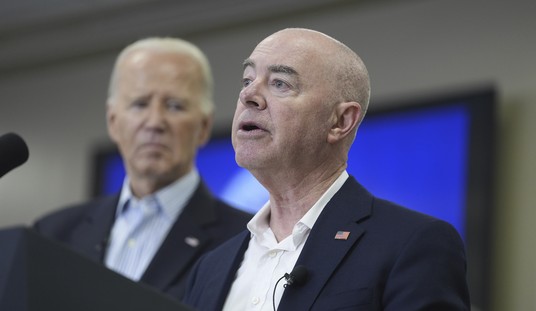Gun control emerged as the primary political battlefront in the wake of the horrific Sandy Hook murders. While the battle to retain our Second Amendment rights remains a superior consideration, statist nannies push on other fronts as well.
A former writer for the Huffington Post, Peter Brown Hoffmeister, claims to have broken ties with the publication after its refusal to publish a piece he submitted regarding the influence of violent video games on troubled teenage males. Self-publishing on his personal blog with the provocative title “On School Shooters – The Huffington Post Doesn’t Want You To Read This,” Hoffmeister reveals his own troubled past while building a case against certain games.
As a teacher, I’ve spent a lot of time this past week [December 27, 2012] thinking about the Newtown shooting, school shootings in general, their causes and possible preventions.
It’s scary now to think that I ever had anything in common with school shooters. I don’t enjoy admitting that. But I did have a lot in common with them. I was angry, had access to guns, felt ostracized, and didn’t make friends easily. I engaged in violence and wrote about killing people in my notes to peers.
But there is one significant difference between me at 16 and 17 years of age and most high school shooters: I didn’t play violent video games.
…
But Jeff Weise did. He played thousands of first-person shooter hours before he shot and killed nine people at and near his Red Lake, Minn., school, before killing himself.
And according to neighbors and friends, Clackamas shooter Jacob Tyler Roberts played a lot of video games before he armed himself with a semi-automatic AR-15 and went on a rampage at the Clackamas Town Center in Portland, Oregon last week.
Also, by now, it is common knowledge that Adam Lanza, who murdered 20 children and six women in video-game style, spent many, many hours playing “Call of Duty.” In essence, Lanza – and all of these shooters – practiced on-screen to prepare for shooting in real-life.
Hoffmeister ends his retrospective with a call for government action. He encourages readers to “support the bill introduced… by U.S. Senator Jay Rockefeller, directing the National Academy of Sciences to examine whether violent games and programs lead children to act aggressively.”
Let us table, for at least a few paragraphs, the fundamental problem with Hoffmeister’s desire for government action. The notion that violent video games have some enchanting effect which leads to shooting rampages neglects to acknowledge the host of other real problems the perpetrators of mass murders repeatedly possess.
In Hoffmeister’s account of his hateful youth, he divulges several intolerable circumstances which should have alarmed the adults around him. He carried weapons both in and out of school, apparently without parental knowledge or meaningful challenge from school officials. He endured no discipline or follow-up after it was discovered he had brought a loaded, stolen handgun onto school grounds. He suffered from psychological problems, was diagnosed as a “failed joiner,” and had suicidal tendencies. He indulged in homicidal fantasies and began to carry a larger array of concealed weapons to school, including a sawed-off shotgun, a knife, and a hammer. Hoffmeister imagines that his life teetering on the abyss of criminal violence might have been given the final push had he been influenced, like the many rampaging shooters he cites, by violent video games.
Are we truly to believe that a child so misguided to begin with needs, more than anything else, to be kept from gaming? Hoffmeister’s own account admits that the eventual corrective influences in his life were healthy adult relationships and other “maturing experiences.” Does this not affirm that the best prescription for troubled youth is caring mentorship and reasoned guidance?
Hoffmeister hardly proves the best judge of the effect of gaming upon young minds. He admits to having no experience with it, and imagines an experience which fails authentication. He refers to gaming as “practice,” as if the average gamer regards their digital entertainment as practical training for a real-life experience.
Call of Duty: Black Ops 2, the most recent military first-person shooter in that franchise, sold 11.22 million copies in its first week of release. The previous entry, Call of Duty: Modern Warfare 3, sold 13.45 million. Those numbers add up to the over 100 million units moved throughout the franchise’s history through 2011. It may not be clear just how many minors are playing these games. However, we can safely assume the number would impress. Of hundreds of thousands and possibly millions of school-aged gamers playing games like Call of Duty, should we not expect more than a handful to engage in murderous rampages if indeed the games are making them do it?
In truth, games do not serve as homicidal practice among mentally healthy gamers anymore than violent films, television, or books serve as homicidal triggers among mentally healthy patrons. The problems marbling the lives of disasters like Adam Lanza or Jeff Weise can be summed up in disengaged, absent, and incompetent parents, to say nothing of mental disorders.
Hoffmeister cites anecdotal testimony from his own students, who say that they routinely play video games for 30 or more hours per week. Accounting for sleeping, eating, and attending school, gaming consumes nearly every waking hour of their lives. Who is letting this happen?! Who provides the environment where this occupational gaming occurs? Can game developers really be held responsible?
In an effort which evokes Queen Gertrude’s line regarding too much protest, Hoffmeister insists he is not an anti-video game crusader. Be that as it may, he certainly advocates government action. The aim of Rockefeller’s bill, ordering government research into the effects of gaming on children, can only be to inform restrictive regulation. Like an environmental impact survey, it’s just a precursor to rationalize force.
That brings us around to the fundamental issue. How does another person’s inability to self-regulate, be it a teen’s inability to refrain from homicidal rampage or a parent’s inability to raise and discipline their children, place a claim upon another’s liberty? Let’s say Rockefeller’s research finds what it is designed to, and video games actually have some degree of unhealthy influence upon children. How does that justify government action? How does that grant anyone the power to tell game developers what they can produce, and gamers what they can buy?
The mentality on display mimics that which dominates the gun control lobby. Instead of recognizing the agency of human offenders, blame gets assigned to inanimate objects. Regardless, the point is moot. Individual rights require that game developers remain free to meet consumer demand. Whether the scapegoat is guns or games, that’s the end of the argument.
Rather than misdirect their effort toward restricting the rights of innocents, Hoffmeister and Rockefeller ought to encourage parental responsibility and, where parents are unavailable, mentorship. Hoffmeister testifies to the therapeutic role outdoor activities played in his transformation from troubled youth to respectable school teacher. Why not end his prescription there? Why are certain people never satisfied until a law has been passed?
Now, if you’ll excuse me, it’s time to get back to practicing galactic conquest with my army of clones.












Join the conversation as a VIP Member